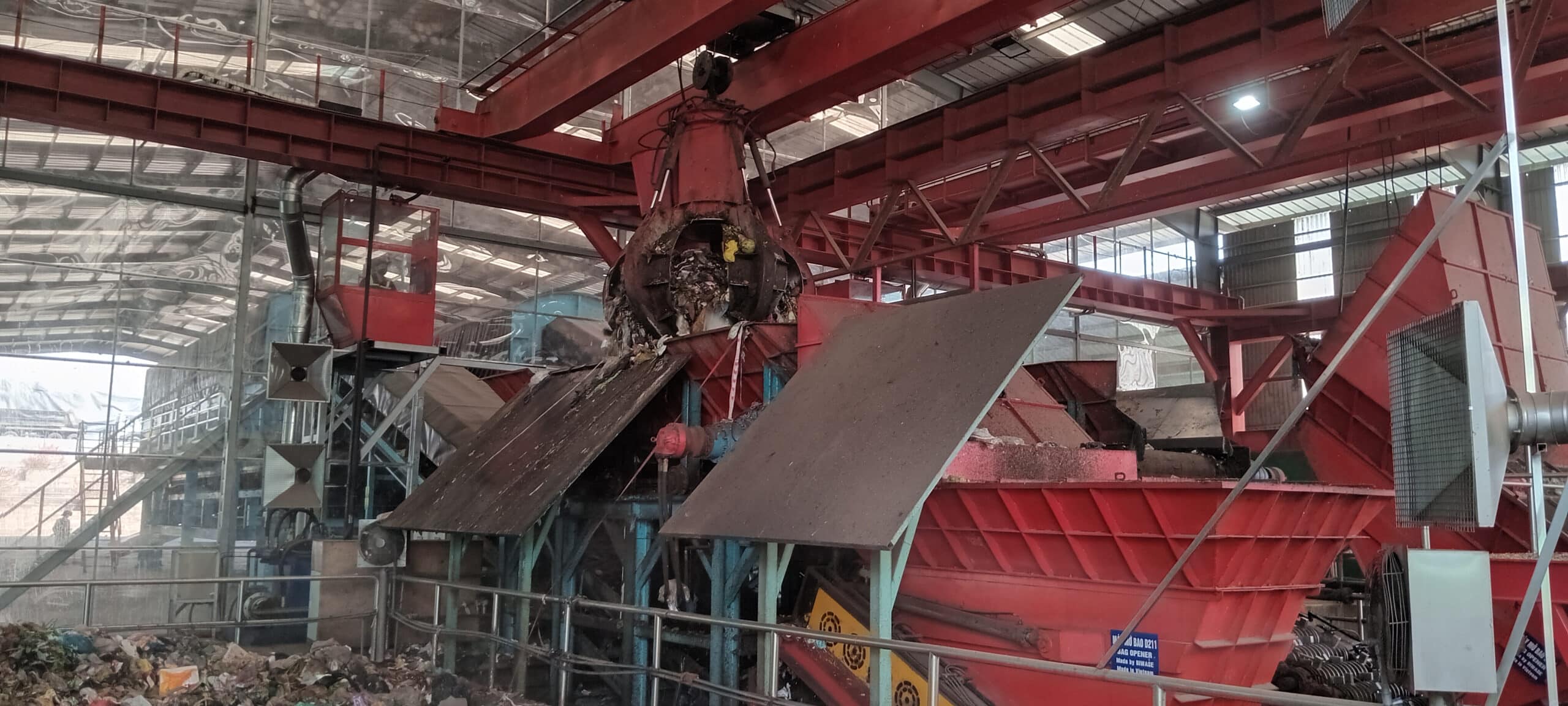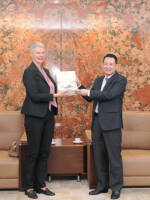
The carbon credit trading platform is a new way to attract green finance for investment in sustainable development. Participation in the carbon market is an opportunity for organizations and businesses to transform to green production, so many businesses are starting to pay attention.
Voluntary transaction
Vietnam does not yet operate an official carbon credit market. However, units and organizations have recently carried out a number of carbon credit projects according to independent international standards on a voluntary basis.
Director of Investment and Trade Consulting Company (INTRACO) Hoang Anh Dung shared that a member company of INTRACO has signed a cooperation agreement with the US-headquartered multinational banking services company Citigroup to develop projects to combat climate change, including the cookstove and water purifier carbon reduction project in Vietnam.
The Project is expected to generate approximately 26.6 million voluntary carbon credits over an estimated 10-year period from the distribution of approximately 850,000 cookstoves and 364,000 water purifiers to participating households in Vietnam. Cookstoves improve household energy efficiency through a reduction in combustible biomass needed for daily household activities such as cooking and heating, while water purifiers can eliminate the need to boil water for safe consumption. Both types of devices are recognized under well-established carbon reduction methodologies with additional and far-reaching social benefits.
According to the signed contract, the company will receive $20.8 million and transfer to Citigroup 7.9 million carbon credits in 2022, 2023, and 2024.
Up to now, the company has transferred to Citigroup more than 1 million carbon credits. Also according to Director Dung, transactions between the two sides are under a voluntary mechanism. Vietnam has also tested a carbon credit trading model.
The Southeast Asian country signed the Emissions Reduction Payment Agreements (ERPA) with the Forest Carbon Partnership Facility (FCPF) – a World Bank multi-donor fund of governments and non-governmental entities – in October 2020.
According to this agreement, Vietnam will reduce 10.3 million tons of CO2 emissions from 6 North Central provinces until 2025 to receive $51.5 million.
By the end of 2023, Quang Binh Province received more than VND 82 billion ($3.38 million) for its efforts to reduce greenhouse emissions, becoming the first locality in Vietnam to receive payments under ERPA. According to scientists who have researched in-depth on carbon credits, the establishment of a carbon credit exchange is an important orientation for Vietnam to achieve zero net emissions by 2050 and help carbon credit transactions more transparent.
However, there has only been so far one carbon credit trading floor of a private enterprise while the national carbon credit exchange will not be operational until 2028.
Talking about this issue, Mr. Nguyen Vo Truong An, Deputy General Director of the above-mentioned ASEAN CCTPA Carbon Credit Exchange Company belonging to CT Group, informed that the CCTPA floor was established according to the Prime Minister’s Decision No. 1775/QD-TTg on approving the Greenhouse Gas Emission Management Project and managing carbon credit business activities to the world market. The CCTPA floor is responsible for assessing the environment and carbon emissions, calculating and measuring emissions, reporting and confirming after measuring and consulting on carbon projects and will submit to certification authorities or carbon management organizations to confirm the results. CCTPA floor works as per the provisions of Clause 1, Article 139 Environmental Protection Law 2020 and regulations in Clause 5, Article 3 of Decree 06/2022/ND-CP, and comply with the Montreal Protocol.
Mr. Truong An added that since the establishment of CCTPA, about 10 large FDI enterprises with a lot of greenhouse emissions have contacted to seek short-term sources of carbon credits. In addition, some Vietnamese businesses will be affected by carbon taxes when exporting to Europe also contacted CCTPA.
Ho Chi Minh City readies to join the market
According to the Department of Natural Resources and Environment of Ho Chi Minh City, after the National Assembly-approved Resolution 98/2023/QH15 was issued, the municipal People’s Committee issued the Decision No. 2856/QD-UBND on promulgating the Plan to implement the Resolution No. 98/2023/QH15. The Department of Finance and the Department of Natural Resources and Environment were assigned to develop a pilot project on financial mechanisms to implement measures to reduce greenhouse gas emissions according to carbon credit exchange and offset mechanisms.
Based on 6 criteria for selecting projects, the Department of Hydrometeorology and Climate Change advised department leaders to propose and select two potential projects which are LED street lights and solar power installation on office roofs.
According to calculations, for the two selected pilot projects mentioned above alone, the total amount of CO2 emission reduction in 10 years is expected to be nearly 1 million tons of CO2 with revenue from selling carbon credits alone of up to VND 220 billion.
However, Mr. Cao Tung Son, Head of the Department of Hydrometeorology and Climate Change, Ho Chi Minh City Department of Natural Resources and Environment, added that the legal framework for calculating, evaluating, and appraising carbon credits is not complete. Currently, in addition to the Decree 06 and the Ministry of Natural Resources and Environment and the Ministry of Industry and Trade’s two guidance documents on the calculation of carbon credits, other ministries have not issued circulars guiding the calculation of specialized greenhouse gases in agriculture, construction and traffic.
In addition, there is still no legal market to buy and sell carbon credits, mainly direct 1-1 trading or trading through brokers and intermediaries of international organizations.
Furthermore, there is no connection between project owners and foreign markets, where carbon credits can be sold at high prices. For the development of the carbon market and for supply and demand to be met, the formation of units which can calculate, evaluate and appraise carbon credits is necessary in addition to the need to perfect the legal framework.
Minh Hai – Translated by Dan Thuy




